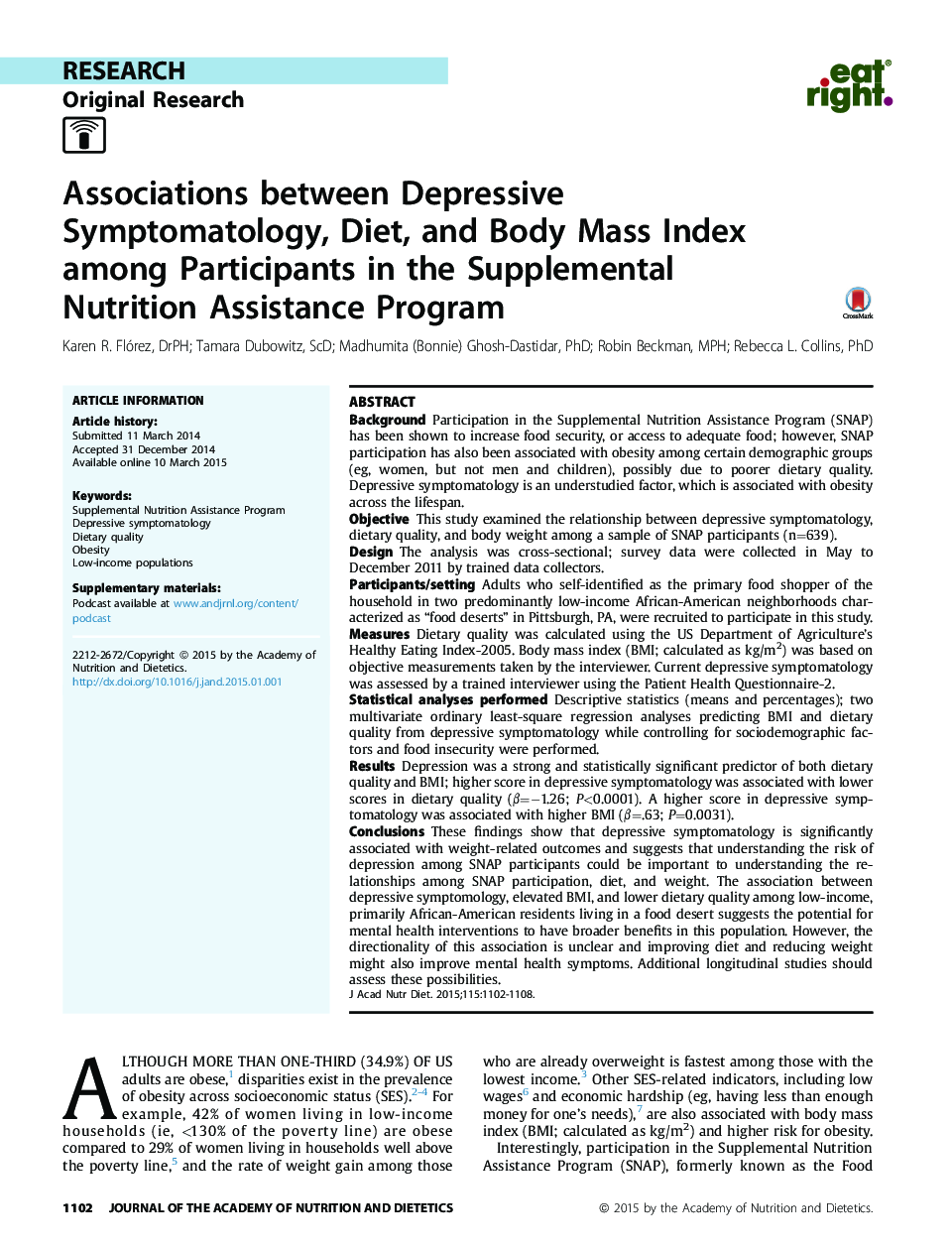| Article ID | Journal | Published Year | Pages | File Type |
|---|---|---|---|---|
| 2653009 | Journal of the Academy of Nutrition and Dietetics | 2015 | 7 Pages |
BackgroundParticipation in the Supplemental Nutrition Assistance Program (SNAP) has been shown to increase food security, or access to adequate food; however, SNAP participation has also been associated with obesity among certain demographic groups (eg, women, but not men and children), possibly due to poorer dietary quality. Depressive symptomatology is an understudied factor, which is associated with obesity across the lifespan.ObjectiveThis study examined the relationship between depressive symptomatology, dietary quality, and body weight among a sample of SNAP participants (n=639).DesignThe analysis was cross-sectional; survey data were collected in May to December 2011 by trained data collectors.Participants/settingAdults who self-identified as the primary food shopper of the household in two predominantly low-income African-American neighborhoods characterized as “food deserts” in Pittsburgh, PA, were recruited to participate in this study.MeasuresDietary quality was calculated using the US Department of Agriculture’s Healthy Eating Index-2005. Body mass index (BMI; calculated as kg/m2) was based on objective measurements taken by the interviewer. Current depressive symptomatology was assessed by a trained interviewer using the Patient Health Questionnaire-2.Statistical analyses performedDescriptive statistics (means and percentages); two multivariate ordinary least-square regression analyses predicting BMI and dietary quality from depressive symptomatology while controlling for sociodemographic factors and food insecurity were performed.ResultsDepression was a strong and statistically significant predictor of both dietary quality and BMI; higher score in depressive symptomatology was associated with lower scores in dietary quality (β=−1.26; P<0.0001). A higher score in depressive symptomatology was associated with higher BMI (β=.63; P=0.0031).ConclusionsThese findings show that depressive symptomatology is significantly associated with weight-related outcomes and suggests that understanding the risk of depression among SNAP participants could be important to understanding the relationships among SNAP participation, diet, and weight. The association between depressive symptomology, elevated BMI, and lower dietary quality among low-income, primarily African-American residents living in a food desert suggests the potential for mental health interventions to have broader benefits in this population. However, the directionality of this association is unclear and improving diet and reducing weight might also improve mental health symptoms. Additional longitudinal studies should assess these possibilities.
